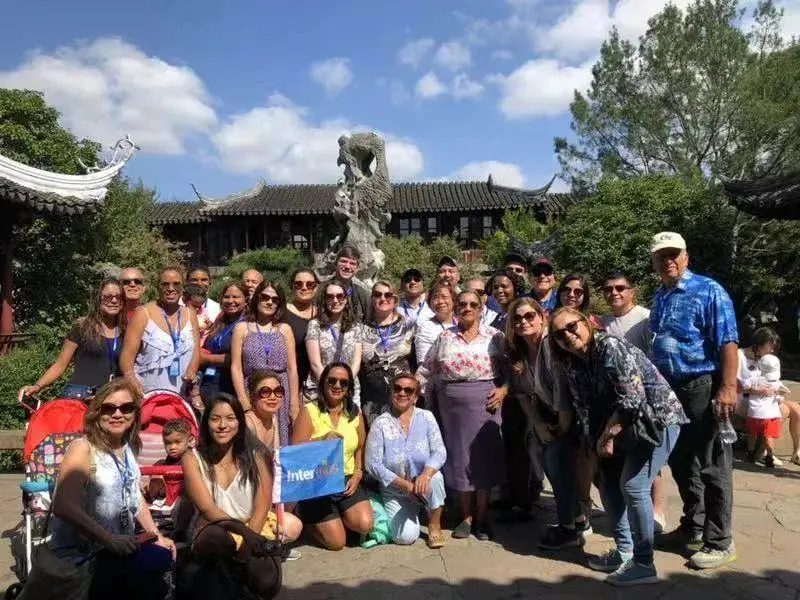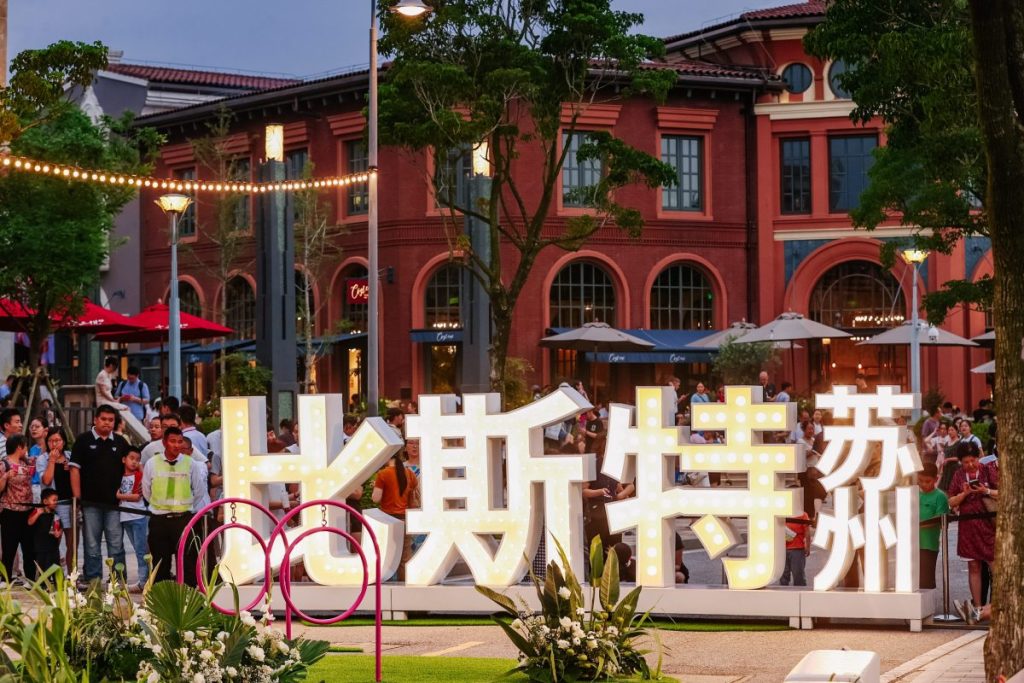Suzhou is one of the oldest cities in China, famous for its classical gardens and ancient water towns, known as the “Venice of the East”.
What is Suzhou famous for?
- Classical gardens: Suzhou boasts nine World Heritage Sites, including the Humble Administrator’s Garden, the Liouyuan Garden, and the Garden of the Master of the Nets, which demonstrate the artistic pursuits of ancient Chinese literati through their skillful layout of rocks and mountains, exquisite pavilion architecture, and water feature design.
- Ancient Water Towns: Zhouzhuang, Tongli, Luzhi and other ancient towns have preserved the ancient Jiangnan way of life intact. Rowing a boat across the stone bridge and watching the whitewashed buildings on both sides of the river reflect in the water is like traveling through time and space.
- Silk Culture: Suzhou is one of the birthplaces of silk in China. The Silk Museum in Suzhou showcases more than 2,000 years of weaving history, and visitors can watch live demonstrations of traditional looms and purchase fine silk.

Must-see Attractions in Suzhou
- Classical Gardens: World Heritage Site
The Humble Administrator’s Garden (admission 70-80 RMB): one of the four most famous gardens in China, with hundreds of flowers blooming in the spring, and pavilions mirroring the landscape.
Liouyuan Garden (admission 45-55 RMB): famous for its exquisite architectural layout, the autumn foliage and ancient buildings form a stunning picture scroll.
Lion’s Grove (RMB 30-40): famous for the “Kingdom of Rockery”, suitable for exploring the labyrinthine stone forest. - Ancient Water Towns: Traveling through time and space in the south of the Yangtze River
Zhouzhuang (RMB 100): “China’s No. 1 Water Town”, take a boat ride along the river, and enjoy Wan San Hoof and green dumplings.
Tongli (RMB 100): Far from the hustle and bustle of commercialization, the Retreat Garden under the lights at night has a unique flavor. - Cultural and modern landmarks
Suzhou Museum (free): a modern building designed by I.M. Pei with a collection of artifacts spanning 1,000 years of history; reservations are required one week in advance.
Jinji Lake (free): the lake view at sunset and the night view of the Gate of the Orient’s “big pants” is a mecca for photographers.
Cold Mountain Temple (admission 20 yuan): famous for “Night Poetry on the Maple Bridge,” the temple is quiet and solemn in winter, and you can experience the New Year’s bells.
Tiger Hill (admission 70 RMB): Tiger Hill Pagoda is a landmark attraction with beautiful natural scenery and long history and culture.

Shopping and Food Recommendations
- Shopping Center
Suzhou Center: the largest complex in East China, integrating international brands, restaurants and art exhibitions.
Bicester Suzhou Shopping Village (Yangcheng Lake): European-style architecture and discounted luxury goods.
Twin Towers Bazaar: a transformed traditional vegetable market, China’s social media hit spot. - Must-try Cuisine
Squirrel Mandarin Fish: Sweet and sour, we recommend the “Gusu Boat Banquet” or the “Tang Hua – Jiangnan Cuisine”.
Dummy Pan-fried Pork: Crispy on the bottom, flavorful in the broth, and even better with beef vermicelli soup.
Noodles in Soup: Experience “noodles in soup” early in the morning. Recommended are noodles with three prawns or stewed pork.
How to get to Suzhou?
- From abroad
Nearest airport:
Shanghai Hongqiao/Pudong International Airport: Take a high-speed train to Suzhou Station (30-50 minutes, fare about 40 RMB) or airport bus (1.5-2 hours).
Wuxi Shuofang International Airport: only 27 kilometers from Suzhou, take a taxi or airport bus (40 minutes).
Train Ticketing: Use your passport to purchase tickets on the 12306 English website or at station windows. - From major cities in China
Beijing → Suzhou
High-speed train: Beijing South Railway Station to Suzhou North Railway Station, many times a day, the fastest time is 4 hours and 10 minutes, the ticket price is 627 RMB (second class seat).
Airplane: Beijing Capital Airport to Shanghai/Wuxi, transfer to high-speed train or bus.
Shanghai → Suzhou
High-speed train: Shanghai Hongqiao Station to Suzhou Station, 30 minutes, fare 39.5 RMB; Metro Line 2 directly to Hongqiao Hub.
Self-driving: Shanghai-Nanjing Expressway (G2) about 1.5 hours.
Guangzhou → Suzhou
High-speed train: Guangzhou South Railway Station to Suzhou North Railway Station, the whole journey takes about 10-12 hours, the ticket price is about 1000 RMB.
Airplane: Guangzhou Baiyun Airport to Shanghai/Wuxi, transfer to high-speed train.
Other Cities
Qingdao: High-speed train about 6-8 hours; Airplane to Shanghai/Wuxi for transfer.
Chengdu/Chongqing: high-speed train directly to Suzhou Station about 14 hours (D638/D3058); airplane to Shanghai/Wuxi is faster.
Xiamen: high-speed train about 10 hours; airplane to Wuxi Shuofang Airport (2 hours).
City Transportation Guide
Metro & Bus
Metro: 9 lines covering major attractions, supports Alipay/WeChat code scanning (need to bind foreign cards) or cash purchase of tickets.
Bus: Fares range from RMB 1-2 and can be purchased in cash or by code using the “Su e Xing” APP, with English stop announcements on some routes.
Cab and Internet Taxi
Cab: Starting price is 13 RMB, with 20% fare increase at night.
Internet taxi: DDT APP supports registration of overseas cell phone numbers and Alipay/WeChat payment.
Attention
Reservation for attractions: The Humble Administrator’s Garden and Suzhou Museum need to be reserved 1-7 days in advance on the official website or public number.
Payment methods: Most venues support cash, Alipay (Alipay) or WeChat (WeChat Pay), some attractions only accept mobile payment.
Transportation card: Metro stations can apply for a “Suzhou Pass” transportation card with a deposit of RMB 20 and NFC recharge support.
Suzhou is a blend of classic poetry and modern convenience. Whether you’re a history buff, a foodie or a photographer, you’ll find a unique experience here. Plan your itinerary and take this guide with you on your journey to the south of the Yangtze River!
